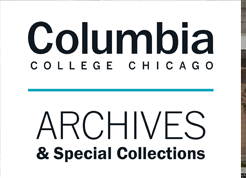-

EMPSA Guidelines and Principles for Monitoring in South Africa
Ecumenical Monitoring Programme in South Africa
Guidelines generated by the Ecumenical Monitoring Programme in South Africa (EMPSA) for official EMPSA election monitors of the 1994 South Africa General Election.
-

EMPSA Rules
Ecumenical Monitoring Programme in South Africa
Rules generated by the Ecumenical Monitoring Programme in South Africa (EMPSA) for official EMPSA election monitors of the 1994 South Africa General Election.
-

EMPSA Daily Reports of the Town Howick in the Natal Region
Howick team, Ecumenical Monitoring Programme in South Africa
A draft of a report by the Ecumenical Monitoring Programme in South Africa (EMPSA) election monitors (Orlando Redekopp, Ursula Schmidt, Hendrikje Schievink, and Maina Murage) for the 1994 South Africa General Election of the town of Howick in the KwaZulu-Natal Province of South Africa from April 14 through April 21, 1994.
-

South African Elections Manual for International Observers
Independent Electoral Commission
A manual produced by the Independent Electoral Commission (IEC) for election observers of the 1994 South Africa General Election.
-

The Hour for Democracy Songbook
Institute for Contextual Theology
A song booklet created by the Institute for Contextual Theology (ICT) to promote democracy and prepare South Africans for the 1994 general election.
-

The SACBC Democracy Charts: A Brief Introduction to the New Constitution
Justice and Peac Commission, Southern African Catholic Bishops Conference
A booklet created by the South African Catholic Bishops Conference (SACBC) to educate voters of the 1994 South Africa General Election about the new system of government and the new Constitution.
-

United Nations Press Release No.08/94
Permanent Mission of South Africa to the United Nations
A press release from the Permanent Mission of south Africa to the United Nations announcing the election results of the 1994 South Africa General Election.
-

United Nations Press Release No.10/94
Permanent Mission of South Africa to the United Nations
A press release from the Permanent Mission of south Africa to the United Nations summarizing the winners of the 1994 South Africa General Election.
-

Observing the New South Africa
Orlando Redekopp
Orlando Redekopp was an international observer of the 1994 South Africa General Election through the Ecumenical Monitoring Programme in South Africa (EMPSA). Authored by Redekopp, this narrative provides a brief memoir of his time in South Africa monitoring the elections.
-

Reflections on Elections in South Africa
Orlando Redekopp
Orlando Redekopp was an international observer of the 1994 South Africa General Election through the Ecumenical Monitoring Programme in South Africa (EMPSA). Authored by Redekopp, this narrative outlines his analysis of five reflections about the elections and the role of the church and Christians.
-

Voter Education Manual
Voter Education and Elections Training Unit and Legal Education Action Project
A manual created by the Voter Education and Elections Training Unit (VEETU) and Legal Education Action Project (LEAP) to help educate new voters about the voting process for the 1994 South Africa General Election.
-

Independent Electoral Commission Code of Conduct for Observers
Independent Electoral Commission
The Independent Electoral Commission’s Code of Conduct for South African election observers for the 1994 South Africa General Election.
View primary resources related to the 1994 General Election in South Africa from the Orlando Redekopp Collection. Between 1948 and 1994, South Africa practiced institutionalized racial segregation, or apartheid. On April 27, 1994, the first general election with universal adult suffrage was held in South Africa. The Independent Electoral Commission (IEC), an independent organization established by the Constitution of South Africa, directed and oversaw the election. Over three days, approximately 19.7 million citizens voted with 62 percent of the votes cast for the African National Congress (ANC). Since the vote was short the two-thirds majority required to unilaterally amend the county’s interim constitution, the ANC formed a Government of National Unity with the other two major parties, National Party and Inkatha Freedom Party. The new National Assembly then enacted its first measure: elect Nelson Mandela as President, marking him the country’s first black chief executive.
Printing is not supported at the primary Gallery Thumbnail page. Please first navigate to a specific Image before printing.


